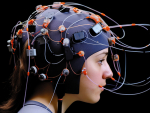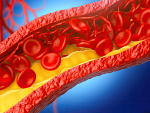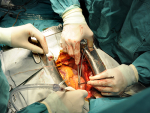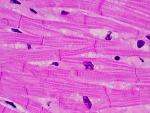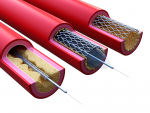Displaying items by tag: department of biomedical engineering
UAB Media Studies students learn how to make documentary films focusing on communities and issues they care about in a semester.
Tagged under
- release
- college of arts and sciences
- honors college
- school of engineering
- school of health professions
- collat school of business
- department of english
- department of art and art history
- department of history
- department of anthropology
- department of mathematics
- department of communication studies
- department of computer science
- department of biomedical engineering
- neuroscience
- barefield entrepreneurship program
- department of nutrition sciences
- department of theatre
- department of psychology
Tagged under
These research areas — part of the Convergence Revolution — have the greatest potential of achieving tremendous impact on the field of medicine in the coming decades or century.
Tagged under
A dormant senior design project out of the UAB School of Engineering is finding life at Children’s of Alabama.
Tagged under
The M.D./Ph.D. student has since moved on to clinical studies, but the research into possible drugs to treat Alzheimer’s disease continues.
Tagged under
The modified mRNA — delivered after experimental heart attacks — transiently allows heart muscle cells to proliferate, leading to reduced infarct size and improved heart performance compared to untreated animals.
The scholarship recognizes outstanding natural sciences, engineering and mathematics students by awarding up to $7,500 for academic expenses.
Tagged under
- release
- honors college
- college of arts and sciences
- school of health professions
- school of engineering
- department of biomedical engineering
- neuroscience
- center for community outreach development
- office of national and international fellowships and scholarships
- office of the provost for student and faculty success
- department of neurology
- school of medicine
- national and international fellowships and scholarships
Bracamonte, Sun and Wang received two-year fellowships from the American Heart Association for their research within the department of biomedical engineering.
Neuroengineering blends engineering principles with neuroscience to find better ways to treat neurological conditions and to build on understanding how the brain and nervous system function.
Tagged under
The study’s goal is to limit the toxic side effects common to many cancer therapies while not affecting their therapeutic benefits.
Tagged under
Insights gained from this project can lead to a new understanding of the mechanisms by which human deep-brain activity gives rise to cognitive-emotional behaviors, such as social thought processes, impulsivity and affect.
Tagged under
Direct reprogramming is a potential therapy for heart attack patients. In vitro, TBX20 improved contractility and mitochondrial function of reprogrammed heart muscle cells.
Tagged under
Zhang wins $11.2 million NIH PPG grant to improve heart attack recovery through growth of new heart muscle cells.
The Council on Basic Cardiovascular Sciences, known as the BCVS, is one of the largest councils at the American Heart Association, and it is one of the largest organizations in cardiovascular sciences globally, with more than 4,700 members.
Tagged under
Single-nucleus RNA-sequencing in a newborn pig model showed increased cell cycle activity and proliferation in cardiomyocytes, which helped remuscularize the left ventricle after experimental heart attack.
Tagged under
Two School of Engineering students have received a Science, Mathematics and Research for Transformation Scholarship from the Department of Defense.
Tagged under
This therapy, using sustained release of nitric oxide, may be a novel, efficient and safe way to prevent and treat multiple metabolic diseases.
Tagged under
- release
- school of medicine
- school of engineering
- department of medicine
- department of biomedical engineering
- department of neurobiology
- division of endocrinology diabetes and metabolism
- division of cardiovascular disease
- harbert institute for innovation and entrepreneurship
- comprehensive diabetes center
Researchers have been awarded a $2.6 million, four-year National Institutes of Health grant to evaluate a safer and more durable stent design, using techniques licensed through the UAB Harbert Institute for Innovation and Entrepreneurship by the UAB spinoff company Endomimetics LLC.
Tagged under
Topics include induced pluripotent stem cell technologies, nanotechnologies, nanomedicine, advanced biomanufacturing, 3D culture systems, 3D organoid systems, genetic approaches to cardiovascular tissue engineering and organs-on-a-chip.


